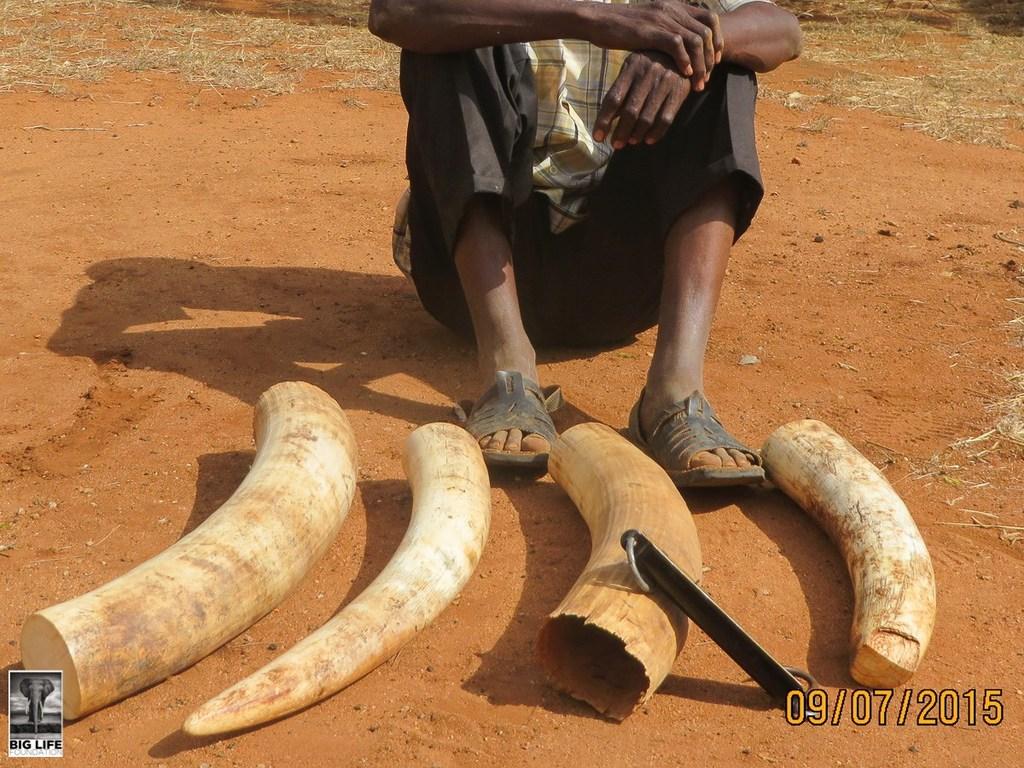
An ivory dealer never keeps the ivory; it’s too dangerous. Rather, he will stash it somewhere safe until convinced that the potential buyer is legitimate. In this case, the dealer misjudged.
The Kenya Wildlife Service (KWS) intelligence unit picked up the trail on a man trying to sell ivory in a town along the Nairobi-Mombasa road. They set up an exchange and selected a joint undercover team of Big Life and KWS rangers to pose as buyers.
The “buyers” arrived in a rented car and managed to talk their way into the dealer’s confidence. He was fooled and led them straight to the ivory, with a KWS arresting team close behind to confiscate the tusks.
This dealer had been selling ivory his whole life, from 50 Kenyan Shillings (US $0.49) per kilogram when he started in the 1970s to the 12,000 Kenyan Shillings (US $118) per kilogram he expected to receive for these tusks—a 24,000% increase in price.
Thanks to KWS and Big Life, he is now awaiting trial for possession of wildlife trophies. From now on, the price of ivory is not going to be of much interest to him.
